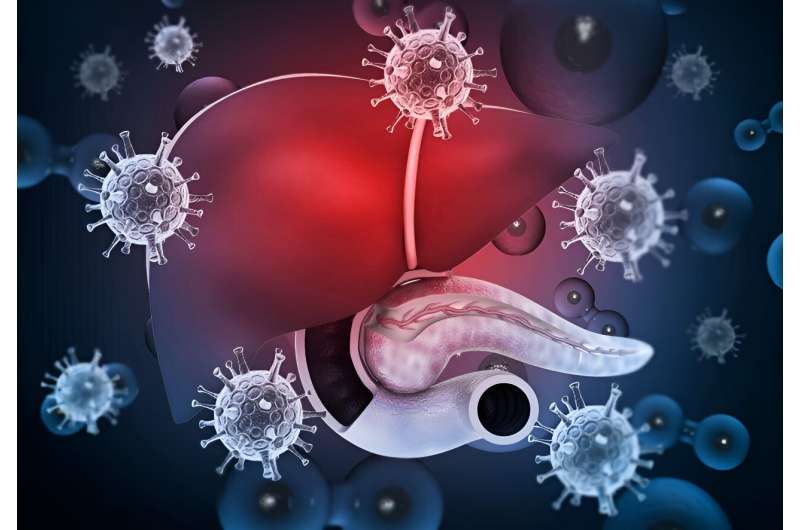Nearly two-thirds of those with hepatitis A virus (HAV)-related deaths have at least one documented indication for HAV vaccine, and only 4% have evidence of vaccination, according to research published in the Oct. 20 issue of Morbidity and Mortality Weekly Report.
Megan G. Hofmeister, M.D., from the CDC in Atlanta, and colleagues analyzed data from 27 HAV outbreak-affected states that contributed data during Aug. 1, 2016, to Oct. 31, 2022, to characterize demographic, risk factor, clinical, and cause-of-death data among 315 outbreak-related HAV deaths.
The researchers found that on 60% of available death certificates, HAV was documented as an underlying or contributing cause of death. There was a peak in outbreak-related deaths in 2019, which then decreased annually through 2022. The median age at death was 55 years; 73 and 84% of deaths occurred among males and non-Hispanic whites, respectively.
Overall, 63% of decedents had at least one documented indication for HAV vaccination, including drug use, homelessness, or coinfection with hepatitis B or hepatitis C (41, 16, 12, and 31%, respectively); evidence of previous HAV vaccination was seen for 4%.
"As of October 2023, 34 states have declared ends to their outbreaks; however, many susceptible adults, particularly among persons who use drugs, persons experiencing homelessness, and persons with chronic liver disease, remain at increased risk for HAV infection or severe disease from HAV infection," the authors write.
More information: Megan G. Hofmeister et al, Preventable Deaths During Widespread Community Hepatitis A Outbreaks—United States, 2016–2022, MMWR. Morbidity and Mortality Weekly Report (2023). DOI: 10.15585/mmwr.mm7242a1
Journal information: Morbidity and Mortality Weekly Report
Copyright © 2023 HealthDay. All rights reserved.
























